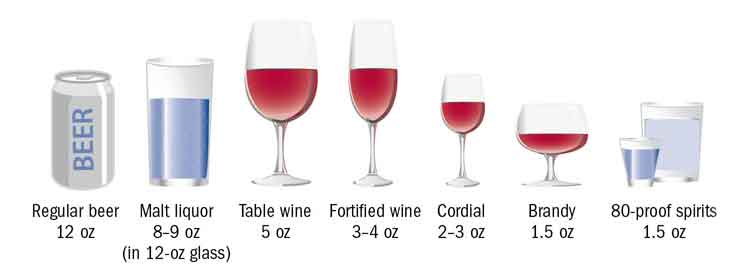
YesNoYesNoYesNoYesNo |
It is not an easy task sifting through mountains of information on supplements and vitamins, touting with promises of health and longevity, stronger bones, better memory, smoother skins, extended erections, anti-this and anti-that. Full of promise yesterday, debunked today. Yesterday's herbal rage, today's snake oil. Or sometimes, debunked yesterday, but resurrected today with new studies, or reincarnated for new uses. It is the frustrating YesNoYesNo of not just vitamins, minerals, supplements, and foodstuff (eggs, alcohol, caffeine, chocolates, etc) but also of prescription pharmaceuticals that somehow managed to slide through the supposedly rigorous standards of testing, only to be shown later on, after reports of adverse reactions and deaths, to be toxic and unsafe. These pages will attempt to sort through some of these sundry topics caught in the yes-no-yes and seesawing of information. |
Eggs • Vit D • Calcium • Chocolates • Wine • Aspirin • Caffeine • Medicines • Supplements |
Alcohol |
||||||||||||||||||||||||||||||||||||
It has been around for millenniums. Stone beer jugs suggest fermentation since Neolithic times. Beer might even have preceded bread as a staple (Braidwood et al, 1953; Katz and Voigt, 1987). Egyptians have pictographed it as early as 4,000 B.C. and made at least 17 types of beer and 24 varieties of wine. After the Great Flood, a vineyard was one of Noah's first projects in Mount Ararat. Renaissance art is replete with colorful depictions of bacchanalia and debauchery. (Man, did those Romans know how to party.) Wine has been used as a form of payment for services rendered. In Medieval England, ale was used for the payment of rent and debts.
The bible, for the most part, has been pro-booze, or at least pro-wine, considering it a symbol of joy (psalms 104; zachariah 10:7). St. Paul wrote of wine as God's creation, inherently good, and recommended it for medicinal use. Of course, there was the Wedding at Cana, running out of wine, and Jesus saving the day with his first miracle - changing water into wine. And of course, its ultimate use in the Last Supper - the transubstantiation of wine into the blood of Christ. Other religions, however, are not exactly passing goblets of wine to each other. Some have warred and continue to war against it. Heretical sects consider the consumption of alcohol as a sin. Many religions - Baptists, Pentecostals, Methodists, among others - hold an abstentionist position. Among the Muslims, it is forbidden - haraam. Rastafarians frown on it while they embrace the spiritual use of cannabis. And although it has served medicinal uses since antiquity - as tonic, antiseptic, cure, and as base for countless homeopathic tinctures - alcohol failed to mount a cultural good side. Despite isolated religions attribution of spirituality, many saw it as an instrument of sin and social evil. And In medicine, it wasn't doing any better. By late 19th century, the therapeutic benefits were increasingly being disputed by practitioners. In 1916 whiskey and brandy were deleted off the list of scientifically approved medicines. In June of 1917, American Medical Association - finding no scientific basis for its therapeutic use as tonic or stimulant or health benefit as food item - passed a resolution opposing the use of alcohol as beverage and discouraged any use as a therapeutic agent. It was a consensus that likely provided support to the Great Experiment of Prohibition, which, of course, was an abject failure. There were a few other obscure trials for intravenous use of alcohol in medicine - for analgesia and anesthesia, and for premature deliveries. But there was a lot of preaching about its dark side - betz cell destruction, dependence, dementia, cirrhosis of the liver, hepatitis, pancreatitis, diabetes, gout, headaches, neuropathy, hypertension, cardiomyopathy, and psychosexual dysfunction, besides the more immediate side effects of making one silly drunk, stripped of civilized inhibitions, vomiting from gastritis, and waking up with a hell-of-a-hangover. Since the French Paradox, there has been a slew of studies. Although there is a preponderance of studies touting benefits with alcohol use, some studies are cause for caution and concern. Besides alcohol-drug interactions, alcohol can worsen a spectrum of medical conditions: hypertension, gout, pancreatitis, ulcers, seizures, etc. For women who drink alcohol even in small amounts, breast cancer looms as a gender spectre.
Yes to alcohol. . . if. . . When wine, beer, and spirits join ranks, the conclusion is inconvertible - alcohol is beneficial to heart, health, longevity, and much more. It can help prevent heart attacks and strokes, and recent studies suggest it might be protective against dementia in older adults. If you're a healthy male who enjoys his daily drink, then toast to your health. If you're a male being treated for sundry kind of medical problems, weigh the risks and benefits. Be aware, that while alcohol can decrease the risk for one disease, it can increase the risk for another.
No. . . if. . . If you health is burdened by obvious medical problems, the risks can greatly outweigh the benefits. As mentioned, many medical conditions are aggravated by alcohol - diabetes and its many related complications, hypertension, seizures, liver problems, neuropathy, sexual dysfunction, osteoporosis, to name a few. If you're female, the studies reporting an increased risk of breast cancer are quite compelling. You should be vigilant in your moderation and limit alcohol intake to not more than one drink or less a day. If you are at high risk for breast cancer, you should avoid alcohol altogether or drink only occasionally. In pregnancy, the literature is extensive and confusing. Fetal-alcohol is often written about. Other correlations abound, albeit, some debatable and unjustified - abruptio placenta, leukemias in children, IQ scores. Some studies suggest 1 to 3 drinks a week show no harmful effects. Scientific studies have not set a threshold below which alcohol use in pregnancy is definitely safe. Nor have studies shown evidence of harm at low levels. Some studies suggest a small benefit at low levels of use.
Moderate means one drink for women and two drinks for men. A drink defined as a 5-ounce glass of wine, one 12-ounce glass of beer, or 1.5 ounces of 80-proof distilled beverage, each of which contains about 14 g of alcohol.
Indeed, moderation is easier said than done. Alcohol is part of our cultural DNA. It entertains, it relaxes. We celebrate, we drown our sorrows with it. It is the inexpensive and too easily accessible icebreaker and social lubricant. And how many fun-loving beer-guzzling men out with their buddies stop after the second 12-ounce glass of beer? What couple out on a romantic evening, music in the air, stars alit, stop after a 5-ounce glass of wine? How often does one stop after the prescribed moderation ounces of spirit?
|
||||||||||||||||||||||||||||||||||||
| by Godofredo U. Stuart Jr., MD April 2012 | ||||||||||||||||||||||||||||||||||||
Updated May 2017 / Sept 2014 |
||||||||||||||||||||||||||||||||||||
• |
||||||||||||||||||||||||||||||||||||
| IMAGE SOURCE: The Wedding Feast at Cana / Julius Schnorr von Carosfeld / 1819 / Wikispaces | ||||||||||||||||||||||||||||||||||||
| OTHER IMAGE SOURCE: File:Drunkenness of Noah bellini.jpg / Giovanni Bellini / 1430-1516 / Public Domain / Wikipedia | ||||||||||||||||||||||||||||||||||||
| OTHER IMAGE SOURCE: What's In A Drink? / Harvard Health Publications | ||||||||||||||||||||||||||||||||||||
| OTHER IMAGE SOURCE:/ Alcohol Kills Slowly / Desicomments | ||||||||||||||||||||||||||||||||||||
| Additional
Sources and Suggested Readings (1) History of Alcohol and Drinking around the World / David J. Hanson, Ph.D. / Potsdam.edu (2) A Case of Severe Brain Atrophy Found in the Man in His Twenties Who Drinks Moderate Amount of Alcohol / Yoo JW, Choi JS / Korean J Fam Med. 2010 Sep;31(9):711-715. Korean. / http://dx.doi.org/10.4082/kjfm.2010.31.9.711 (3) Alcohol Enhances Oxysterol-Induced Apoptosis in Human Endothelial Cells by a Calcium-Dependent Mechanism / Ioakim Spyridopoulos; Jörg Wischhusen; Björn Rabenstein; Petra Mayer; Dorothea I. Axel; Kai-Uwe Fröhlich; Karl R. Karsch / Arteriosclerosis, Thrombosis, and Vascular Biology. 2001;21:439-444 (4) The aging human betz cell / Madge E. Scheibela, Uwami Tomiyasua, Arnold B. Scheibel / Experimental Neurology, Volume 56, Issue 3, September 1977, Pages 598–609 (5) The French paradox: lessons for other countries / Jean Ferrières / Heart. 2004 January; 90(1): 107–111. (6) Wine is Fine, But Beer May Be Better / Sid Kirchheimer / March 2007 / Revolution Health Group (7) Alcohol and Health: A drink a day won't keep the doctor away / Charles Lieber, MD / Cleveland Clinic Journal of Medicine, Vol 70, No 11, Nove 2003. (8) A Drink a Day May Keep Alzheimer's Away / Medscape Medical News (9) Moderate alcohol consumption and cognitive risk / Neafsey EJ, Collins MA / Neuropsychiatric Disease and Treatment, August 2011 Volume 2011:7(1) Pages 465 - 484 / DOI: http://dx.doi.org/10.2147/NDT.S23159 (10) Alcohol Consumption and Risk of Stroke in Women / Monik Jimenez, Stephanie E. Chiuve, Kathryn M. Rexrode l / STROKEAHA.111.639435, March 8, 2012, / doi: 10.1161/STROKEAHA.111.639435 (11) Long-term alcohol consumption in relation to all-cause and cardiovascular mortality among survivors of myocardial infarction: the Health Professionals Follow-up Study / Jennifer K. Pai, Kenneth J. Mukamal, and Eric B. Rimm / Eur Heart J (2012) / doi: 10.1093/eurheartj/ehs047 (12) Intravenous alcohol -- a single blind study in the prevention of premature delivery: a preliminary report. / Watring WG, Benson WL, Wiebe RA, Vaughn DL. / J Reprod Med. 1976 Jan;16(1):35-8. (13) Study supports alcohol, breast cancer link / Carolyn Schatz, Editor, Harvard Women's Health Watch (14) Moderate Alcohol Consumption During Adult Life, Drinking Patterns, and Breast Cancer Risk / Wendy Y. Chen, MD, MPH; Bernard Rosner, PhD; Susan E. Hankinson, ScD; Graham A. Colditz, MD, DrPH; Walter C. Willett, MD, DrPH / JAMA (15) Epidemiology and Pathophysiology of Alcohol and Breast Cancer: Update 2012 / Helmut K. Seitz, Claudio Pelucchi, Vincenzo Bagnardi, and Carlo La Vecchia / Alcohol and Alcoholism (2012) / doi: 10.1093/alcalc/ags011 (16) Alcohol: weighing the risks versus the benefits / David Dunalef, MD / Times Beacon Record (17) Enhanced Antithrombotic Effect of Warfarin: Discussion / Medscape (18) Alcohol and Osteoporosis / Osteoporosis Health Center / WebMD (19) Impact of Alcohol Abuse On American Society / Alcoholics Victorious / (20) Long term alcohol intake and risk of rheumatoid arthritis in women: a population based cohort study / Daniela Di Giuseppe, PhD student, Lars Alfredsson, professor, Matteo Bottai, professor, Johan Askling, associate professor, Alicja Wolk, professor / BMJ 2012;345:e4230 (21) Alcohol Consumption and Risk of Atrial Fibrillation: A Prospective Study and Dose-Response Meta-Analysis / Susanna C. Larsson, PhD∗; Nikola Drca, MD†; Alicja Wolk, DMSc∗ / J Am Coll Cardiol. 2014;64(3):281-289. doi:10.1016/j.jacc.2014.03.048 (22) Ventricular Arrhythmias Can Follow Oktoberfest-Style Drinking / Peter Russell / News and Perspective / Medscape Internal Medicine / April 27, 2017 (23) Sudden Unexpected Death in Alcohol Misuse—An Unrecognized Public Health Issue: Alex H. Tempelton et al / Int J. Environ Res Public Health. 2009 Dec; 6(12): 3070-3081 / DOI: 10.3390/ijerph6123070 (24) Holiday Heart Syndrome / Adam S Budzikowski, MD, PhD, FHRS / The Heart Org: Medscape |
 No other food item has gone through the tug-of-war of censure and approval—sin and virtue, good and evil, healthy and unhealthy—as alcohol. It is the quintessence of Yes-and-No.
No other food item has gone through the tug-of-war of censure and approval—sin and virtue, good and evil, healthy and unhealthy—as alcohol. It is the quintessence of Yes-and-No. 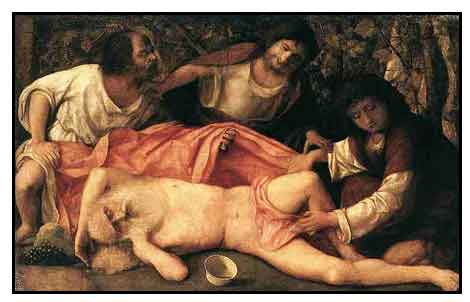
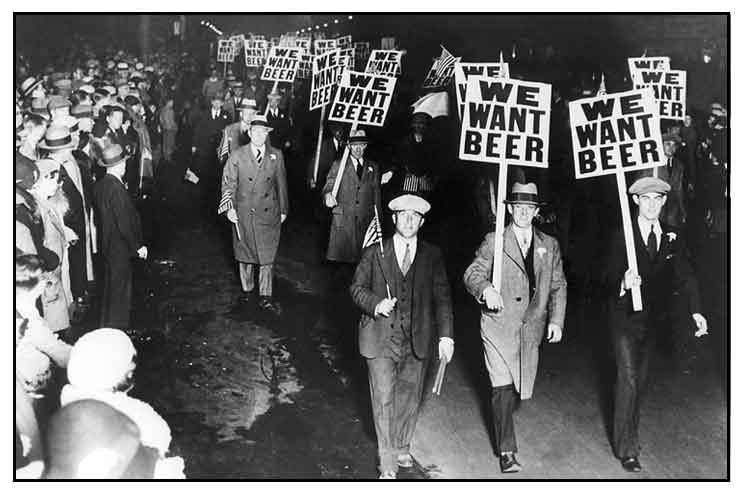
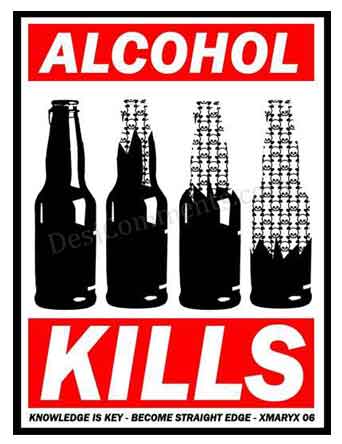 Vehicular fatalities
Vehicular fatalities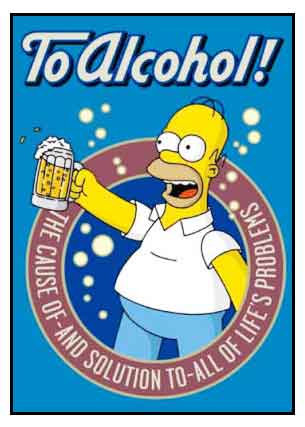 Moderation is the key.
Moderation is the key.